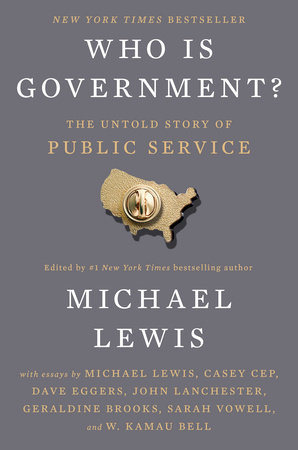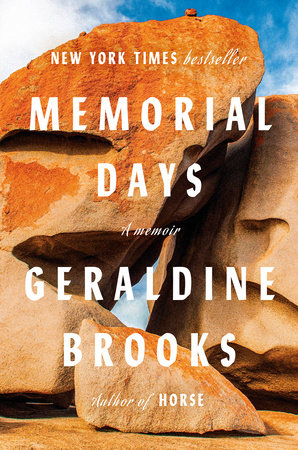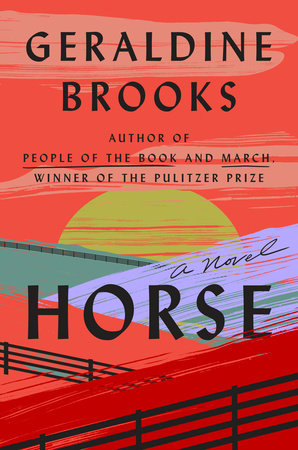Geraldine Brooks
Author of the Pulitzer Prize-winning March and the international bestselling People of the Book

Photo credit: Randi Baird
-
About Geraldine Brooks
Australian-born Geraldine Brooks is a Pulitzer Prize-winning author and journalist renowned for her deeply immersive, character-driven historical novels. Her fiction debut, Year of Wonders: A Novel of the Plague, became an international bestseller, translated into more than 25 languages. Published in ten countries, it was named a Notable Book of the Year by The New York Times, The Washington Post, and The Chicago Tribune in 2001. The novel is currently optioned for a limited series by Olivia Colman’s production company. In 2006 Brooks won the Pulitzer Prize for Fiction for her second novel, March. Her other bestsellers include People of the Book, Caleb’s Crossing, The Secret Chord, and Horse.
In addition to fiction, Brooks has authored acclaimed nonfiction books, including Nine Parts of Desire: The Hidden World of Islamic Women, Foreign Correspondence: A Penpal’s Journey from Down Under to All Over, and The Idea of Home. Her latest book, Memorial Days, was published in 2025.
In 2025, Brooks also contributed an essay to Michael Lewis’ Who Is Government? The Untold Story of Public Service, a book that started as a major series in the Washington Post. The book profiles various government workers and is an important contribution to the national conversation about the role of government. Brooks writes about the IRS, one of the government’s least popular agencies. She focused on Jared Koopman, head of the IRS’ Criminal Investigations Division, who played a key role in shutting down the Silk Road black market.
Brooks began her career at The Sydney Morning Herald before moving to the U.S. to earn a master’s degree in journalism from Columbia University. She spent 11 years as a correspondent for The Wall Street Journal, reporting from the Middle East, Africa, and the Balkans.
A Radcliffe Institute Fellow at Harvard University in 2005, Brooks also received the 2010 Dayton Literary Peace Prize for Lifetime Achievement.
Contact us for more information about booking Geraldine Brooks for your next event.
-
Speaking Topics
The Art of the Historical Novel: Making Fiction from Fact
Pulitzer Prize-winning author Geraldine Brooks masterfully blends historical research with compelling storytelling, bringing the past to life in her acclaimed novels. In this engaging talk, she explores the delicate balance between fact and fiction, sharing her process for transforming real events, historical figures, and archival discoveries into immersive narratives. Brooks will discuss the ethical and creative challenges of reimagining history, the role of research in shaping character and plot, and how historical fiction can offer fresh perspectives on the present. Drawing from her bestselling works, including March, People of the Book, and Horse, she provides insight into how writers can craft authentic, emotionally resonant stories from historical sources.
A Writer's Life: From Newsroom to Novelist
Before becoming a Pulitzer Prize-winning novelist, Geraldine Brooks spent over a decade as a foreign correspondent, covering conflicts in the Middle East, Africa, and the Balkans for The Wall Street Journal. In this insightful talk, she reflects on how her years as a reporter shaped her approach to storytelling. As a foreign correspondent, she searched out the voices of the marginalized and unheard. As a historical novelist, she strives to hear the muted voices of the past. Rich with gripping, and occasionally absurd, stories from her reporting years, the talk traces one writer's unlikely journey from chaotic battlefields to the contemplative life of the novelist.
-
Video
-
Praise for Geraldine Brooks
Warm and witty, charming and profound, Geraldine’s talks were filled with a little bit of magic, and our crowd of library fans and book lovers were THRILLED to be under her spell. Geraldine’s charisma created an instantaneous connection with the crowd, and her personal attention later on in the book signings was equally as thoughtful and engaging. We understood both the author and her incredible array of historical novels more deeply by the end of her time with us, and we’re immensely grateful for her candor and wisdom. Please pass along our heartiest thanks to Geraldine…it was a perfect set of events for us!
— Friends of the Hennepin County LibraryExcellent in every way.
— New Canaan LibraryFabulous. Members of the audience were thrilled to see her live in Milton. They loved her stories and the messages behind them, as well as her cozy and comfortable style. Someone summed up her presentation as “captivating”.
— Milton Public LibraryShe was excellent. Her prepared remarks were informative, and she wove in personal stories which made the presentation very special. She was generous with the Q&A and interacted very nicely with a varied audience. The audience response was very positive.
— Brewster Ladies” Library AssociationDelightful, erudite, fascinating, easy to work with, great speaker, wicked sense of humor.
— Linden Place Mansion and MuseumGeraldine’s warmness and ability to communicate with both students and faculty is a gift. She is so engaging! The faculty loved her response to a student’s question about writer’s block–we could see the teacher in her coming out!
— Bethel CollegeFantastic – a very engaging talk, she was very warm and made the audience laugh, she talked about challenging topics like writing across race very honestly and thoughtfully, and gave very generous responses to questions. We had a really happy audience.
— Fall for the BookMs. Brooks was an amazing, engaging speaker. The audience loved her. They were thrilled with the opportunity to meet her, to learn about her process, and to ask questions about her work.
— Friends of the Ridgewood Public LibraryBrooks was engaging and created a casual atmosphere. The room was full to capacity but she shared as if it was a small book club.
— University of Richmond, Boatwright Memorial LibraryWarm, engaging, and open to interaction with guests.
— The Literary Society of the DesertI don’t even know where to begin to describe what a wonderful event and experience we had yesterday. Geraldine was sweet, funny, intelligent, informative and by 7:00 p.m. last night the general consensus was that she was one of the best authors we have had in 17 years of doing this.
— Hershey Public LibraryPraise for Memorial Days
Brooks tracks the geography of grief with patience and grace as she comes to terms with the ongoing nature of outliving the ones you love most. … Her memoir is certainly a testament to her own unique loss, but it’s moreover a lifeline to others who will find themselves in this familiar, shattered landscape of grief.
— Los Angeles TimesPraise for Horse
Brooks’ chronological and cross-disciplinary leaps are thrilling . . . [Horse] is really a book about the power and pain of words . . . Lexington is ennobled by art and science, and roars back from obscurity to achieve the high status of metaphor.
— The New York Times Book ReviewIn her thrilling new novel Horse, Geraldine Brooks moves back and forth between the 19th century and the near present with the same practiced ease she displayed in her 2008 epic People of the Book . . . Brooks [has an] almost clairvoyant ability to conjure up the textures of the past and of each character’s inner life . . . Her felicitous, economical style and flawless pacing carries us briskly yet unhurriedly along. And the novel’s alternating narratives, by suspending time, also intensify suspense.
— Wall Street Journal[A] deft novel . . . create[s] a picture of the artistic, athletic, and scientific passions that horses can inspire in humans.
— The New Yorker[A] sweeping tale . . . fluid, masterful storytelling . . . [Brooks] writes about our present in such a way that the tangled roots of history, just beneath the story, are both subtle and undeniable . . . Horse is a reminder of the simple, primal power an author can summon by creating characters readers care about and telling a story about them—the same power that so terrifies the people so desperately trying to get Toni Morrison banned from their children’s reading lists.
— Maggie Shipstead, The Washington PostHorse isn’t just an animal story—it’s a moving narrative about race and art.
— TIMEA thrilling story about humanity in all its ugliness and beauty . . . while the historic detail in the book is impressive, it’s the fictions filling in the blanks where Brooks’ genius truly shines . . . The care with which Brooks crafts each character’s voice is a plea to look past the categorical labels and legends with which we describe each other, to truly see the individual. Paired with a compelling plot, the evocative voices create a story so powerful, reading it feels like watching a neck-and-neck horse race, galloping to its conclusion—you just can’t look away.
— Oprah DailyA confident novel of racing and race . . . with tender precision, Horse shows us history in flux . . . the book returns the Australian-American novelist to the terrain that won her a Pulitzer Prize with March, her 2005 tale of the war-absent father from Little Women. She brings the same archival confidence and sensory flair to the antebellum racetrack.
— The GuardianThis is historical fiction at its finest, connecting threads of the past with the present to illuminate that essentially human something . . . Calling all horse girls: This is the story of the most important racehorse you’ve never heard of, but it’s also so much more than that.
— Good HousekeepingA testament to the intelligence and humanity of animals, a stinging rebuke of racist and abusive humans, and a study of how the past gets recorded, remembered, and remade . . . anyone who ever grew up loving horses, anyone who dearly loves an animal, will find a cornucopia of riches in this novel.
— Boston GlobeThis heart-pounding novel about a famous antebellum champion thoroughbred named Lexington and his talented, enslaved trainer circles two tracks, one historical, one contemporary, to highlight the ongoing scourge of racism in America.
— Christian Science MonitorBrooks is an accomplished writer . . . [She] has a talent and passion for research that is fully expressed here—she writes beautifully about the anatomy of horses and the delicate work of ‘articulating’ their skeletons, arranging every bone in its proper place. The descriptions of 19th-century horse racing, when the animals were bred differently and raced much longer tracks, are thrilling.
— The AtlanticHorse mingles the past with the present, and history melds with well-informed invention . . . Brooks crafts an exceptionally sensitive portrayal of an enslaved groom and his special bond with Lexington.
— Smithsonian MagazineHorse glows . . . engrossing, masterful . . . Brooks makes each setting come alive . . . [N]ot the least of the lessons of Horse is an understanding of the redemptive power of art.
— St. Louis Post-Dispatch[F]ew authors can claim the range of Geraldine Brooks . . . What truly sets her work apart from many others, however, is the rigorous and extensive nature of her research […] which shines through on every page. Readers will not only enjoy Brooks’s well-told tales but will also likely learn something new along the way . . . The end result is a deliciously dense, character-rich exploration of the world of horse racing that still manages to make some stinging observations about the modern-day state of race in America.
— Paste[Y]ou won’t be able to contain yourself while reading this elegant story about three generations of people inspired by the story of America’s greatest racehorse . . . This is a novel about love, anger, passion, and justice—unbridled and bursting.
— LitHubBrooks is such a sharp pleasure to read . . . her research is meticulous, but she wears it lightly. And she writes supple, vigorous prose . . . she sees a universal condition that transcends the boundary lines of time and place . . . in short, she operates one of the best time machines around.
—With exceptional characterizations, Pulitzer Prize–winner Brooks tells an emotionally impactful tale . . . [The] settings are pitch-perfect, and the story brings to life the important roles filled by Black horsemen in America’s past. Brooks also showcases the magnificent beauty and competitive spirit of Lexington himself.
— Booklist, (Starred Review)Brooks probes our understanding of history to reveal the power structures that create both the facts and the fiction . . . [She] has penned a clever and richly detailed novel about how we commodify, commemorate, and quantify winning in the United States, all through the lens of horse racing.
— Library Journal, (Starred Review)[A] marvelous novel. Brooks structures the book like a mystery . . . Through Jarret’s story, the author reveals the unique and indispensable role Black trainers and jockeys played in the pre-Civil War South . . . Equestrian or no, readers will appreciate Brooks’s invitation to linger awhile among beautiful and graceful horses, to see the devotion they engendered in her characters.
— Shelf Awareness“A fascinating saga based on the true story of a famous 19th-century racehorse . . . Brooks’s multiple narratives and strong character development captivate, and she soars with the story of Jarret.”
— Publishers Weekly“[Brooks] demonstrates imaginative empathy […] and provides some sardonic correctives to White cluelessness . . . Brooks skillfully […] demonstrate[s] how the poison of racism lingers. Contemporary parallels are unmistakable . . . Strong storytelling in service of a stinging moral message.”
— Kirkus Reviews, (Starred Review)[A] sweeping exploration of racial injustice.”
— Electric LiteraturePraise for The Secret Chord
Rich and imaginative. . . Thanks to Brooks, David is as compelling as he is contradictory, with the writing in The Secret Chord as lyrical as the lyre that David plays.
— The Minneapolis Star TribuneThere’s something bordering on the supernatural about Geraldine Brooks. She seems able to transport herself back to earlier time periods, to time travel. Sometimes, reading her work, she draws you so thoroughly into another era that you swear she’s actually lived in it. With sensory acuity and a deep and complex understanding of emotional states, she conjures up the way we lived then. . . Brooks has humanized the king and cleverly added a modern perspective to our understanding of him. . . [Her] vision of the biblical world is enrapturing.
— The Boston GlobeThe Secret Chord—a thundering, gritty, emotionally devastating reconsideration of the story of King David—makes a masterly case for the generative power of retelling. . . some of the magic here has to do with setting and time—for sensory dramatics, it’s hard to compete with the Iron Age Middle East. . . but Brooks’s real accomplishment is that she also enables readers to feel the spirit of the place.
— The New York TimesIt’s this David—gifted artist, vainglorious alpha male, conflicted husband and father—that we meet in The Secret Chord, the beautiful, subtle, grave new novel by Geraldine Brooks. . . The Secret Chord paints [a] fresh portrait of King David. . . For Brooks, David is interesting not for his status as the most beautiful man in art history, but, rather, for his matrix of contradictions. . . in this telling, he is the Bible’s ultimate Machiavellian.
— USA TodayIn her gorgeously written novel of ambition, courage, retribution, and triumph, Brooks imagines the life and character of King David in all his complexity. . . The language, clear and precise throughout, turns soaringly poetic when describing music or the glory of David’s city. . . taken as a whole, the novel feels simultaneously ancient, accessible, and timeless.
— ALA Booklist -
Books by Geraldine Brooks
-
Media About Geraldine Brooks
Request Fees
and Availability
- 212 572-2013
- Geraldine Brooks travels from Vineyard Haven, MA













